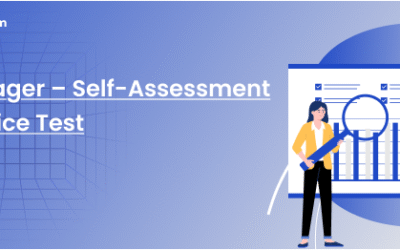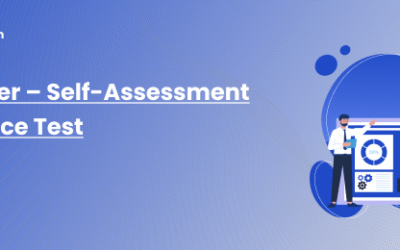The role of a daily farm manager is essential for the smooth operation of agricultural enterprises. It’s a demanding position, combining hands-on tasks with strategic planning to ensure farm productivity. From overseeing animal care to managing staff and finances, a farm manager wears many hats.
Daily responsibilities typically include monitoring crop health, managing livestock, and ensuring equipment is well maintained. These tasks are crucial for not only maintaining productivity but also for achieving long-term goals. Good management also involves financial oversight, such as budgeting and resource allocation, which directly impacts the farm’s profitability.
In this post, we’ll explore the various roles and responsibilities of a daily farm manager, highlighting the skills needed to thrive. Understanding these aspects can help aspiring managers and current professionals streamline their operations effectively. If you’re curious about how to optimise farm management, you can check out this insightful guide on What Is Dairy Farm Management?. This knowledge not only aids in personal development but also prepares you for the challenges ahead in agricultural management.
Overview of Daily Farm Manager Responsibilities
Daily farm managers play a crucial role in the agricultural sector. Their responsibilities are diverse, ensuring the farm operates efficiently. Here’s a closer look at the core aspects of this role.
Operational Management
Farm managers oversee daily operations with a keen eye for detail. They coordinate tasks like planting, harvesting, and livestock care, ensuring everything runs smoothly. By scheduling activities effectively, they can maximise productivity. Think of it as conducting an orchestra; all parts must work in harmony for a successful outcome. Managers often use technology to track progress and maintain records, which aids in decision-making. This approach minimises downtime and optimises resource use across all farm activities.
Team Supervision
Managing farm staff is another critical responsibility for farm managers. They recruit, train, and supervise employees to ensure everyone is aligned with farm goals. Proper training is essential for skill development and safety awareness. By delegating tasks effectively, managers can oversee multiple areas without becoming overwhelmed. Regular check-ins with the team foster good communication and boost morale. When staff feel appreciated and heard, productivity often increases. Have you thought about how teamwork plays into farm success? A respected and motivated team can make all the difference.
Resource Allocation
Effective resource allocation is vital in farm management. Managers must make informed decisions about equipment, labour, and materials. They analyse current usage and ensure resources are available when needed, avoiding waste. It’s like balancing a budget; every resource must be accounted for to ensure sustainability. Managers often assess equipment needs and schedule maintenance to prolong lifespan. In this way, they maintain operational efficiency, ultimately enhancing profitability. Curious about the impact of proper resource management? Discover more about other management strategies here.
Compliance and Safety Regulations
A significant part of a farm manager’s role involves adhering to agricultural regulations. This includes environmental laws, labour standards, and safety protocols. Managers implement safety practices to protect staff and machinery, helping to prevent accidents or injuries. Keeping up with changing regulations is crucial for maintaining compliance and avoiding penalties. It’s not just about following rules—it’s about fostering a safe work environment. Regular training sessions on safety procedures can keep everyone informed. Have you considered how compliance can lessen risks on the farm? Ensuring everyone understands their responsibilities can lead to a safer and more efficient workplace.
Overview of Daily Farm Manager Responsibilities
Daily farm managers play a crucial role in the agricultural sector. Their responsibilities are diverse, ensuring the farm operates efficiently. Here’s a closer look at the core aspects of this role.
Crop and Livestock Management
One of the primary responsibilities of a daily farm manager is overseeing crop and livestock care. This includes scheduling planting and harvesting times, monitoring growth stages, and ensuring that crops receive necessary nutrients and pest control. For livestock, managers are tasked with daily feeding, checking health, and arranging veterinary care when needed. Keeping a regular health check is essential to prevent outbreaks of disease. Implementing a routine can be likened to maintaining a fitness regimen; regular check-ups and a balanced diet lead to better outcomes. How often do you think about the critical role healthy crops and animals have on the farm’s success?
Financial Management
Effective financial management is vital for a farm’s sustainability. Farm managers must develop budgets, monitor cash flow, and maintain financial records. They track every expenditure, from seed purchases to equipment maintenance, ensuring each investment contributes positively to profits. This is similar to running a household budget; careful planning helps avoid unnecessary debts. Over time, managers analyse financial data to inform future decisions. Curious about how efficient resource management can boost financial health? You might want to explore insights on What Is Cost Management?.
Reporting and Documentation
Maintaining accurate records is essential for compliance and future planning. Farm managers document everything, from crop yields to livestock health logs and financial transactions. This documentation aids in regulatory compliance, ensures that the farm meets safety standards, and helps with future analysis. Consider it like preparing for an exam; thorough notes and records lead to better performance over time. Having detailed reports also supports strategic planning, allowing managers to adjust practices based on past outcomes. If you’re looking for more on resource management techniques, check out What Is Resource Management?.
Skills Required for Effective Farm Management
To ensure a smooth-running operation, farm managers must possess a diverse range of skills. These skills help in navigating the complex demands of farm management effectively. Let’s explore some of the essential skills needed for success.
Leadership and Communication Skills
Strong leadership is critical in managing a farm. As a farm manager, you set the vision and direction for your team. This requires clear communication to ensure everyone understands their roles and responsibilities. Think about it: without effective communication, how can a team work seamlessly? Regular meetings and updates keep everyone on the same page and foster a sense of community. Building trust within the team enhances morale and productivity. It’s about creating an environment where staff feel valued and empowered to share their ideas. Have you considered how your leadership style can impact team dynamics?
Technical and Agricultural Knowledge
A deep understanding of agricultural practices and technology is a cornerstone of effective farm management. This knowledge allows managers to make informed decisions regarding crop production, pest control, and livestock health. Familiarity with modern tools and techniques is equally essential. For instance, knowing how to operate irrigation systems, manage fertiliser applications, or use farm management software can make a significant difference. It’s much like being a mechanic; knowing how every part works enables you to maintain and optimise the whole system. Are you up to date with the latest agricultural advancements?
Analytical and Problem-Solving Skills
Being able to analyse data and solve problems is crucial for making sound business decisions. Farm managers face various challenges, from weather fluctuations to market changes. Strong analytical skills help managers assess situations, identify trends, and develop strategies to address issues. Think of it as being a detective; you look for clues in the data to figure out the best course of action. Regularly monitoring key performance indicators (KPIs) can guide your decision-making process. Have you thought about how data can influence your farm’s success and sustainability?
These skills create a foundation for efficient farm management, allowing managers to lead their teams and operations effectively while navigating the complexities of modern agriculture. For more insights into effective management techniques, you might find the information on land management particularly useful.
Best Practices for Daily Farm Managers
Managing a farm requires a blend of skills and a commitment to continuous improvement. To stay ahead in this demanding industry, daily farm managers can adopt several best practices that not only enhance productivity but also ensure smooth operations. Here, we discuss two key areas: continuous learning and leveraging technology in day-to-day management.
Continuous Learning and Adaptation
The agricultural sector is constantly evolving, and staying informed is invaluable. Encouraging farm managers to embrace continuous learning helps them adapt to changes and seize new opportunities. This pursuit of knowledge can be achieved through various means:
- Attend workshops and seminars: These events offer practical insights and networking opportunities with industry experts.
- Follow agricultural journals and blogs: Keeping up-to-date with the latest research and trends is essential. You might find valuable articles on management techniques that can influence your approach.
- Join online forums and communities: Engaging with peers allows managers to exchange ideas and best practices.
These avenues not only enrich personal skills but also improve the overall effectiveness of farm operations. Have you considered how your growth can influence your team’s performance? For more insights on effective management approaches, explore What Is Store Management?.
Utilising Technology in Farm Management
In today’s world, technology plays a critical role in enhancing farm efficiency. From management software to smart sensors, technology can transform daily tasks and decision-making. Here are some ways technology facilitates better farm management:
- Precision Agriculture: Tools like GPS and drones allow managers to monitor crops and livestock with pinpoint accuracy. This data informs decisions on irrigation, planting, and harvesting, optimising yield while minimising waste.
- Farm Management Software: Comprehensive platforms help streamline operations, monitor finances, and keep track of inventory, making it easier to allocate resources effectively. By centralising information, managers can make informed decisions quickly.
- IoT Devices: Sensors placed throughout the farm can collect data on soil health, weather patterns, and animal welfare. This information empowers managers to respond proactively to changes, improving productivity and animal care.
Technology is akin to having a trusted partner by your side, guiding you through daily operations. Have you thought about how incorporating the right tools can ease workload and improve outcomes? For further reading, check out What Is CPC Management?, which highlights how technological advancements transform various areas of management.
Managing a Farm: The Core Responsibilities
In understanding the daily farm manager’s role, it’s clear that effective management is pivotal for success. This section summarises the central responsibilities that ensure smooth operations on the farm.
Daily Oversight
Daily oversight is essential for maintaining the health and productivity of the farm. Managers must regularly inspect crops and livestock, ensuring that everything is on track. This involves checking for signs of disease and assessing the overall growth. Just as a coach monitors players during practice, a farm manager must keep a close eye on daily activities.
Record Keeping
Accurate record keeping underpins successful farm management. From documenting crop yields to tracking expenses, these records provide a clear picture of the farm’s performance. It’s like keeping a diary; reflection helps future planning. Updated records enable managers to make informed decisions and adjust strategies as needed.
Team Leadership
Leading a team effectively fosters a collaborative environment. Farm managers should establish clear roles and encourage open communication. When everyone knows their responsibilities and feels respected, productivity increases significantly. Imagine running a well-coordinated sports team where each player plays their part—that’s the essence of good farm leadership.
Financial Acumen
Financial management cannot be overlooked. Daily farm managers are responsible for budgeting and financial planning. Understanding cash flow and managing expenses ensures the farm stays profitable. This is akin to balancing a household budget; wise spending leads to long-term stability. Want to gain insights into financial strategies? Explore What Is Cost Management? to strengthen your approach.
Adapting to Challenges
Challenges will arise on any farm, from unpredictable weather to market shifts. A capable manager must adapt strategies quickly. Problem-solving skills allow for prompt responses, minimizing potential losses. This agility is like a sailor adjusting sails according to changing winds. How well can your management practices withstand unexpected changes? Focused preparation can mitigate risks effectively.
As outlined, daily farm management encompasses various responsibilities, each contributing to the farm’s overall success. The impact of competent management is profound, reflecting in both productivity and the well-being of the agricultural enterprise. For even more insights into managing agricultural operations, consider reviewing articles on Dairy Farm Management. Exploring various management tactics can significantly boost your understanding and effectiveness in agricultural roles.




